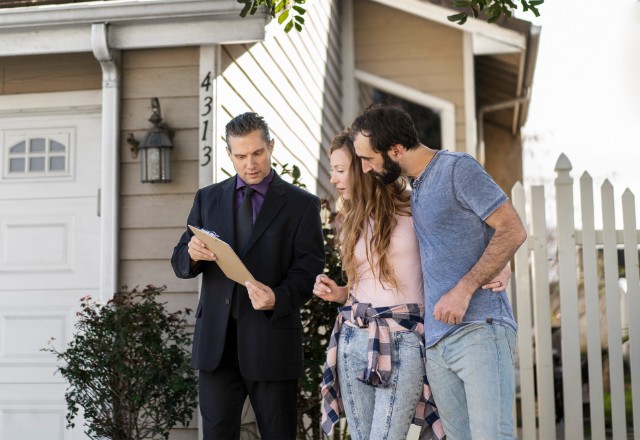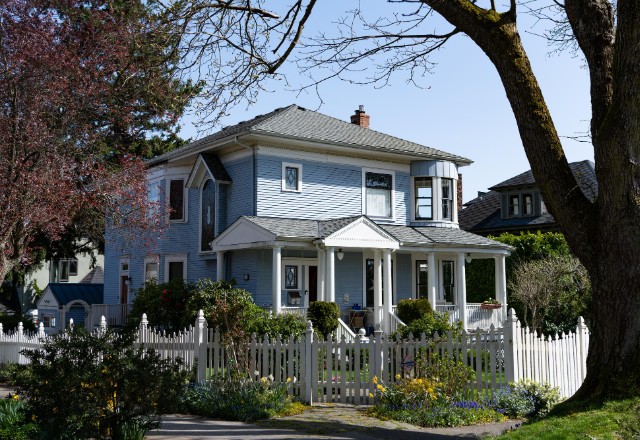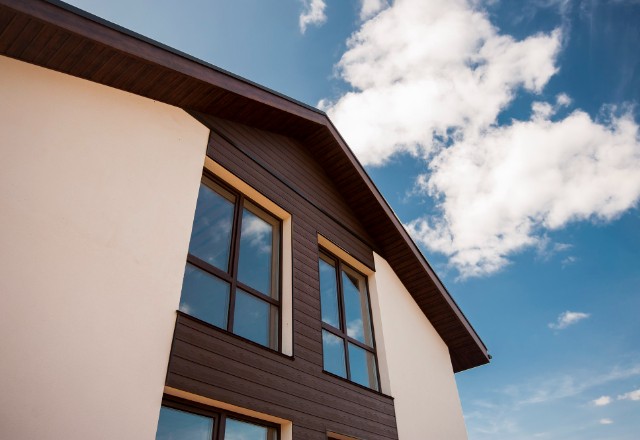When it comes to siding options for homeowners, vinyl siding is undoubtedly a popular choice. With its durability, versatility, and range of colors, it offers homeowners an excellent option for both aesthetics and functionality. Unlike other common siding materials such as aluminum or wood, vinyl siding requires minimal maintenance and has a long lifespan. This low-maintenance aspect is especially appealing to homeowners who are looking to reduce their home maintenance tasks and expenses. Additionally, vinyl siding is known for its ability to withstand extreme weather conditions, providing protection against wind, rain, and even hail. It is also an energy-efficient choice, as its insulation properties help to regulate the temperature inside the home, reducing energy bills.
Disclaimer: The content provided in this article is for informational purposes only and should not be taken as professional advice. For specific advice concerning your particular situation, we recommend consulting a qualified professional from Advance Roofing LLC who can provide tailored consultation to meet your needs.
Advantages of Vinyl Siding Over Other Types of Siding
Vinyl siding is a popular choice for homeowners due to its numerous advantages over other types of siding.
- One of it’s main benefits is its exceptional durability. Unlike aluminum or cedar siding, vinyl is resistant to rot, insect damage, and water damage, ensuring a longer lifespan.
- Another advantage is its low-maintenance nature. Vinyl siding requires minimal upkeep, saving homeowners both time and money. While other siding materials may require regular cleaning or refinishing, vinyl only needs occasional washing with a garden hose to keep it looking its best.
- Siding made of vinyl also offers a wide range of colors and styles, allowing homeowners to achieve the desired curb appeal for their homes. From traditional wood grain to modern styles, vinyl siding offers versatility to suit any architectural preference.
- Affordability is another key advantage. While premium materials like stone or brick can be expensive, vinyl siding provides an excellent choice for homeowners on a budget without compromising quality.
- Moreover, it offers energy efficiency benefits that can help reduce energy bills. Its insulating properties contribute to maintaining a comfortable indoor temperature and reducing heat loss or gain.
Disadvantages of Vinyl Siding

While vinyl siding has numerous advantages, it’s important for homeowners to be aware of its potential disadvantages as well.
- One drawback is its susceptibility to high winds, especially in areas prone to hurricanes or strong storms. In extreme weather conditions, vinyl strips may become damaged or even blown off, requiring costly repairs or replacement.
- Another concern with vinyl siding is its tendency to fade over time. Despite the wide range of colors available, prolonged exposure to the sun’s UV rays can cause the color to gradually fade, impacting the aesthetic appeal of the home. Regular maintenance such as painting or staining may be required to maintain the desired appearance.
- Additionally, while vinyl surface is generally low-maintenance, it does require regular cleaning and upkeep. Accumulation of dirt, mildew, or mold can occur, especially in areas with high humidity or moisture. Regular cleaning with a mild detergent or power washer may be necessary to prevent damage and maintain the siding’s longevity.
Life Expectancy of Vinyl Siding

The life expectancy of vinyl siding can vary depending on various factors such as the quality of the vinyl, installation, and proper maintenance. On average, it can last anywhere from 20 to 40 years or more with proper care. Regular cleaning to remove dirt, mold, and mildew is essential to prevent damage and maintain the siding’s lifespan. It is also important to inspect the siding regularly for signs of damage such as loose boards or water damage.
Factors That Affect the Lifespan of Vinyl Siding

The lifespan of your siding can vary depending on several factors.
- One of the main factors is the local climate. Extreme weather conditions such as high heat, strong winds, and heavy rainfall can cause wear and tear on the siding over time. Siding that is constantly exposed to these conditions may require more frequent maintenance and can have a shorter lifespan.
- Maintenance practices also play a crucial role in determining the longevity of vinyl siding. Regular cleaning with a garden hose can help remove dirt and debris that can cause damage to the siding. Proper care should also be taken to address any signs of damage such as loose boards or water damage.
- The quality of the vinyl itself is another important factor. Opting for a higher quality vinyl can result in a longer lasting product. Thicker siding and additives such as titanium dioxide can provide enhanced durability and resistance to color fading and insect damage.
Proper Maintenance to Maximize Its Lifespan

Proper maintenance is essential to maximize the lifespan of vinyl siding. By following a few simple steps, homeowners can keep their siding in excellent condition for many years:
1. Cleaning: Regularly clean the vinyl siding to remove dirt, dust, and grime. Use a garden hose with a soft-bristle brush or cloth to gently scrub the surface. Avoid using abrasive cleaners or a power washer, as they can damage the siding.
2. Inspecting: Periodically inspect the siding for signs of damage. Look for warping, breaks, cracks, or tears. Address any repairs promptly to prevent further damage and maintain the integrity of the siding.
Regular cleaning and inspections are essential because they help prevent buildup of debris, mold, and mildew, which can lead to more significant issues like water damage and rot. By maintaining the siding in good condition, you can also ensure its energy efficiency and enhance curb appeal.
Extreme Weather Conditions and Their Impact on the Durability of Siding
Extreme weather conditions can have a significant impact on the durability of vinyl siding. Cold temperatures, in particular, can cause the siding to become brittle and more prone to cracking. When vinyl is exposed to freezing temperatures, its structure may weaken, making it more susceptible to damage. This can include cracks, fractures, or even complete breakage.
On the other hand, excessive heat can also pose a threat to vinyl siding. In extremely hot climates, the siding can melt or warp, losing its shape and aesthetic appeal. The scorching sun rays can lead to color fading as well, which not only affects the appearance of the siding but also its ability to provide protection.
Homeowners often choose to replace their vinyl siding due to signs of aging and wear. Faded color is a common reason for replacement, as it can significantly diminish the curb appeal of a home. Additionally, siding that shows signs of cracking, warping, or other forms of damage may need to be replaced to maintain the integrity of the exterior.
Conclusion
In conclusion, vinyl siding can last for decades with proper maintenance and care. Regular cleaning and inspections are essential to keeping the siding in good condition and preventing damage from extreme weather conditions. Homeowners should also make sure to choose a high-quality product with features such as titanium dioxide for enhanced durability. By following these steps, homeowners can ensure that their vinyl siding will last for many years to come.



 509-201-4190
509-201-4190
